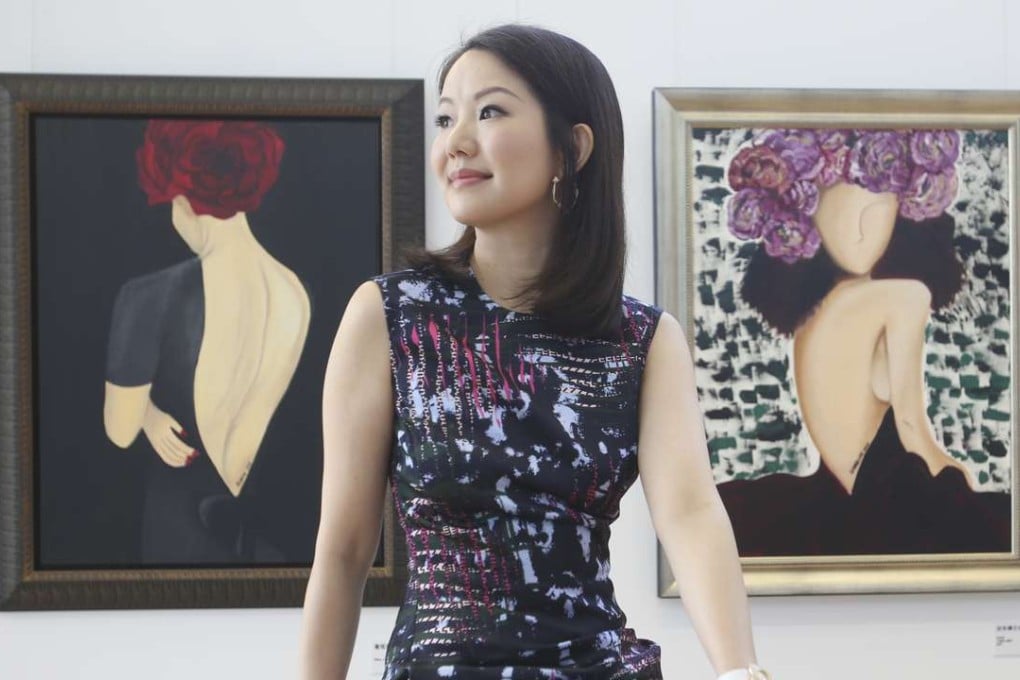How Hong Kong journalist berated by Jiang Zemin turned to art
Sharon Cheung, whose question to then-Chinese president led him to accuse city press pack of being ‘too simple, sometimes naive’, took up painting after hitting a low point and is selling works to raise money for Food Angel

Berated by President Jiang Zemin for being “too simple, sometimes naive” in 2000 – after asking if Jiang’s endorsement of then Hong Kong chief executive Tung Chee-hwa amounted to an imperial instruction – Sharon Cheung Po-wah, then a Hong Kong journalist, has since had an eight-year stint with an entertainment group and is now running her own media strategy company. Cheung, who is hosting a charity art exhibition this weekend, talks about art and how journalism today is not what it used to be.
What prompted you to start painting?
SHARON CHEUNG: I had learned painting for seven to eight years but stopped after entering university. Last year, I left Media Asia and I had a lot of time on my hands. But I felt really depressed at the same time because there were suddenly a lot of changes in my life.
Changing jobs was not the biggest reason, since it was planned in advance. I lost my dog, which I had had for sixteen years. I also lost some friends, in the sense that we’ve stopped talking. So all of a sudden, I had an emotional outburst and I plunged to a really low point; it was almost like jumping off a cliff. So I picked up painting again, spending long periods of time each day painting; it was very soothing.

You are selling the paintings on show to raise money for Food Angel. Why did you choose this charity?